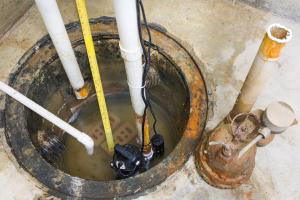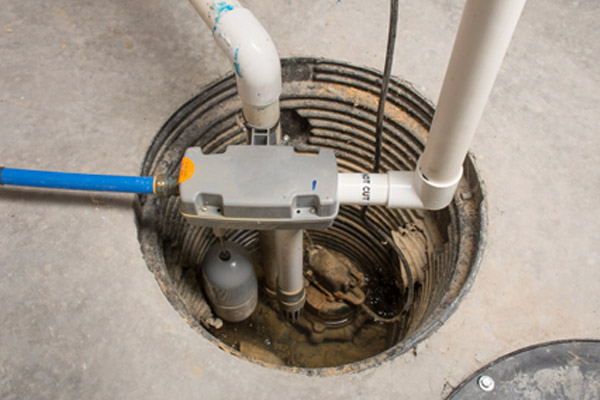An Guide to Effectively Caring for a Sump Pump
An Guide to Effectively Caring for a Sump Pump
Blog Article
They are making a number of great points on How To Effectively Clean A Sump Pump as a whole in this post in the next paragraphs.

Sump pumps are important parts in numerous homes, particularly in areas susceptible to flooding or excessive moisture. They aid prevent water damages by successfully removing excess water from basements or crawl spaces. However, like any other appliance, sump pumps require routine maintenance to guarantee they function successfully when needed the most. Cleansing your sump pump is an essential part of its upkeep, and understanding exactly how to do it effectively can save you from expensive fixings and prospective disasters.
Intro
Maintaining a clean sump pump is vital for its correct performance and long life. Neglecting this essential task can lead to blockages, malfunctions, and inevitably, water damage to your home. As a result, discovering exactly how to cleanse a sump pump is vital for homeowners that rely on these devices to maintain their basements completely dry and safeguarded.
Comprehending the Sump Pump
Before diving right into the cleansing procedure, it's important to have a basic understanding of how a sump pump functions. Commonly mounted in a pit or container listed below the basement floor, a sump pump includes several crucial parts, including a pump, a float switch, and a discharge pipe. When water gathers in the pit, the float button turns on the pump, which after that pumps the water out via the discharge pipe, far from the structure's foundation.
Signs of a Dirty Sump Pump
Recognizing when your sump pump requires cleaning is crucial for protecting against prospective malfunctions. Some common indications that suggest a dirty sump pump include unusual sounds during operation, lowered water circulation, and noticeable debris in the pit. If you see any one of these signs, it's vital to clean your sump pump quickly to prevent any type of more issues.
Preparing for Cleaning
Before you start cleansing your sump pump, it's essential to take some safety and security precautions. Start by shutting down the power to the pump to avoid any electric crashes. Furthermore, wear ideal safety equipment, such as gloves and safety glasses, to protect on your own from dirt, particles, and potential pathogens.
Detailed Overview to Cleaning Up a Sump Pump
Turning off the Power
Begin by disconnecting the power supply to the sump pump to prevent any kind of mishaps while cleansing.
Eliminating Particles and Dirt
Make use of a bucket or a scoop to get rid of any visible debris, dirt, or debris from the sump pit. Dispose of the debris effectively to stop it from blocking the pump or the discharge pipeline.
Cleaning the Pump and Drift Change
As soon as the pit is clear of debris, thoroughly get rid of the pump from the pit. Evaluate the pump and the float button for any kind of indications of damage or wear. Make use of a soft brush or fabric to clean up the surfaces and remove any kind of accumulated crud.
Flushing the System
After cleaning the pump and float button, flush the sump pit with clean water to get rid of any type of remaining dust or debris. This will aid make certain that the pump runs smoothly and successfully.
Checking for Proper Functioning
Prior to reinstalling the pump, perform a quick examination to make certain that the float switch activates the pump appropriately. Pour some water right into the sump pit and observe the pump's procedure. If everything is working appropriately, you can reconstruct the pump and reconnect the power supply.
Upkeep Tips to Keep Your Sump Pump Clean
In addition to routine cleaning, there are numerous upkeep pointers you can follow to maintain your sump pump in ideal problem:
Conclusion
Cleansing your sump pump is a crucial aspect of its maintenance and ensures that it operates successfully when you need it one of the most. By adhering to the steps outlined in this overview and including routine upkeep into your regimen, you can extend the lifespan of your sump pump and secure your home from water damages.
6 STEPS ON HOW TO CLEAN A SUMP PUMP PROPERLY
UNDERSTANDING SUMP PUMPS
Your sump pump plays a crucial role in protecting your home by managing and removing excess water. It primarily functions as a “shield”, guarding your basement against the damaging effects of water accumulation. The pump is housed in a sump pit in the lowest part of your basement, and its job is to pump out any water that collects there.
During heavy rainfalls or when snow melts rapidly, water can infiltrate your basement, posing potential risks like flooding, structural damage, and harmful mold growth. Here, the sump pump springs into action, pumping out the intruding water and directing it away from your home.
SAFETY FIRST
Before cleaning, remember to prioritize safety. Disconnect the sump pump from the power source to prevent any accidental electric shocks. Also, wear sturdy gloves to protect your hands from any sharp or dirty components within the pump.
REMOVE THE SUMP PUMP
After ensuring your safety, the next step is to remove the sump pump from its pit. Doing this might require careful maneuvering as you don’t want to damage any pump components. Once removed, clean the sump pit to remove any accumulated debris or sludge.
INSPECT THE PUMP
Inspect the pump for any visible signs of wear or damage. Check the power cord, float switch, and impeller housing. If any components look worn out or damaged, consider replacing them to ensure optimal performance.
CLEAN THE PUMP
Thoroughly clean the pump with warm, soapy water. Make sure to rid it of any dirt, gravel, or other debris that might impede its performance. You can use a toothbrush to clean the small, hard-to-reach parts of the pump.
REINSTALL THE SUMP PUMP
Reinstall the pump into the sump pit Make sure it’s positioned correctly to remove the water effectively Once it’s back in place, reconnect it to the power source TEST THE PUMP
Finally, pour some water into the pit to ensure the pump works correctly. It should start automatically and begin pumping out the water; if it doesn’t, check the power source and the positioning of the pump.
Remember, while cleaning your sump pump is an essential part of home maintenance, hiring a professional plumber for a thorough inspection and cleaning at least once a year is also important. This will ensure that your pump is in optimal condition, ready to protect your home from potential water damage.
BEST PRACTICES FOR CLEANING SUMP PUMP DISCHARGE PIPES
Regular Inspection: Regularly inspect your discharge pipes, especially during heavy rainfall or snowmelt periods. Look for any signs of blockage or damage. Early detection of problems can prevent serious issues down the line. Periodic Cleaning: Over time, sediment and debris can accumulate in the discharge pipes, impeding the flow of water. Regular cleaning helps keep the pipes clear and functioning efficiently. You can use a high-pressure water jet to effectively clean the pipes. Insulation During Winter: In colder climates, discharge pipes can freeze, blocking the outflow of water. Protect your discharge pipes from freezing temperatures by insulating them with foam pipe insulation. This will ensure the sump pump can continue to discharge water even in freezing conditions. Proper Positioning: The discharge pipe should be positioned to direct water away from your home’s foundation. Improper positioning can lead to water seeping back into the basement. Ensure the pipe is long enough and angled correctly. Installation of a Check Valve: A check valve prevents water from flowing back into your sump pit after the pump has pushed it out. Installing a check valve helps maintain the efficiency of your sump pump and reduces the risk of flooding. Minimize Pipe Turns: Every curve or turn in the discharge pipe can decrease the efficiency of water flow. By minimizing turns and bends in your discharge pipe, you can increase the efficiency of your sump pump. https://www.fullspeedplumbing.com/how-to-clean-a-sump-pump-properly9999/

I stumbled upon that review about Steps to Cleaning Your Sump Pump Properly while doing a lookup on the internet. Sharing is caring. Helping others is fun. We value your readership.
Pricing Report this page